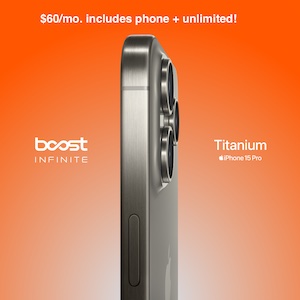Acer, Asustek, Lenovo To Offer Thunderbolt Ultrabook PCs, But Can It Overcome USB 3’s Head Start?
Digitimes’ Monica Chen and Joseph Tsai report that according unnamed industry sources, PC makers Acer, Asustek Computer and Lenovo are expected to offer Ultrabook notebooks based on Intel’s Ivy Bridge platform, which supports Thunderbolt in the second quarter of 2012, while Gigabyte Technology will take the initiative to offer Thunderbolt-enabled motherboards,.
Chen and Tsai note that Ivy Bridge already natively supports USB 3.0 technology, but due to its greater cost, Thunderbolt technology is only expected to be supported on high-end notebooks or desktops in 2012.
Thunderbolt technology, which has been supported by Apple machines for nearly a year now, leverages two major data communication protocols: PCI Express for data transmission, and DisplayPort for image display, allowing users to only use one port to connect to many different devices.
But Can Thunderbolt Unseat USB 3.0’s Dominance?
In a commentary, DigitalTrends’ Jeffrey Van Camp notes that the battle over which data cable standard will dominate in the years ahead is beginning to heat up, and with USB 3.0 gaining traction, the fate of Intel’s Thunderbolt data-transfer protocol is still uncertain. Van Camp notes that while everything PC runs on USB, Apple has been a huge contrarian proponent of Thunderbolt, including it rather than USB 3 as the principal data port in its entire line of MacBook computers. However, he cautions that even support from the world’s most popular tech manufacturer doesn’t necessarily guarantee success, citing the fate of Apple’s own technically and functionally superior FireWire, which faltered as the PC world embraced USB 2.0.
However, he observes that with PC heavyweights Acer, Asus, and Lenovo reportedly ramping up to offer Thunderbolt ports on at least their higher-end Ultrabook laptops, the protocol’s debut to coincide with the launch of Intel’s new Ivy Bridge processor platform in Q2 2012, and Ivy Bridge’s support of both Thunderbolt and USB 3.0, Thunderbolt will get its chance to go head-to-head with the category leader in the PC orbit.
Van Camp acknowledges that Thunderbolt’s superiority to USB 3.0 is clear. For example, it supports throughput of up to 10 Gigabits per second (or 1.2 Gigabytes per second) while USB 3.0 only offers speeds up to 5Gbps or 640 Megabytes per second, and the other high speed data transfer protocol, SATA3, tops out at 6Gbps. Not only that, Thunderbolt can deliver 10 watts of power to bus-powered or charging devices, as opposed to USB 3.0’s maximum 4.5 watts, and versatile Thunderbolt can be used as an HDMI replacement as well, able to deliver HD video and eight channels of HD audio too.
On the other hand, USB 3 has the cumulative advantages of consumer familiarity, ubiquity, and transparent backwards-compatibility with gazillions of current and legacy peripheral devices, while
Thunderbolt is limited by being proprietary Intel technology, currently only compatible with Intel chipsets. Consequently, in order to support the majority of smartphones and tablets, including Apple’s, it would need to be ported and licensed to support ARM processors. Rumors circulated a while back that Apple was working on Thunderbolt support for the iPad, but not so much lately, and reportedly there are formidable technical obstacles.
Van Camp probably mirrors the sentiment of protocol war weary consumers in asking, “Why can’t most devices support both?” — PC makers latching on to Thunderbolt at least for Intel powered devices, and Apple adding support for USB 3.0. Sounds like common sense.
For the full report Digitimes visit here:
http://www.digitimes.com/news/a20120120PD207.html
For Jeffrey Van Camp’s full commentary visit here:
http://bit.ly/yP26cI
